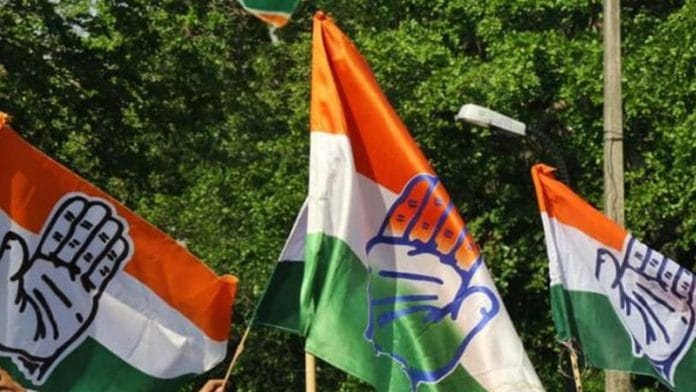Thank you dear subscribers, we are overwhelmed with your response.
Your Turn is a unique section from ThePrint featuring points of view from its subscribers. If you are a subscriber, have a point of view, please send it to us. If not, do subscribe here: https://theprint.in/subscribe/
Shyam Sunder Shyam, a distinguished district-level politician, passed away on February 2, 1985, in New Delhi, leaving behind a remarkable legacy of public service and dedication to democratic principles. Born on December 7, 1923, in Datia, Shyam Sunder Shyam’s journey into politics began during the Quit India Movement in 1942. As a student, he actively participated in the struggle for independence, demonstrating his early commitment to the cause of freedom.
Shyam Sunder Shyam’s political career took a significant turn after India gained independence. He embraced the democratic system and became a passionate advocate for socialism and secularism. His belief in eradicating feudalism guided his political path, leading him to serve as Deputy Speaker. His tireless efforts to garner support and raise anti-feudal sentiments highlighted his unwavering dedication to democratic values.
In the face of rising feudal and reactionary elements within the state, Shyam Sunder Shyam extended his support to the Congress party, hoping to unite against the Jan Sangh and feudal forces. However, he remained resolute in his mission, ready to sever ties with the Congress if it strayed from his vision of a more equitable society.
Early Life and Education
Shyam Sunder Shyam was born into a family with a strong educational background. His grandfather, Mathura Prasad, was a businessman under British rule. His father, the late Shri Murlidhar Ji was a well-known geography teacher at Lord Reading High School in Datia and mother Brijrani was a housewife. Shyam Sunder Shyam married Savitri Shyam in 1941, and together they had nine children.
Shyam’s academic journey began at home, followed by education at the Hindi Middle School in Allahabad and high school in Datia, where he graduated in 1940. He pursued higher studies at Government Inter College, Jhansi (1942), and later completed his B.A. and LL.B. from Agra University. In 1955, he served as a teacher in Datia High School before being promoted to Deputy Education Inspector.
A multi-faceted personality, Shyam Sunder Shyam excelled in various fields during his student life, including literature, music, hockey, and public service. His involvement in the 1942 national movement led to his arrest, marking the beginning of his lifelong commitment to public service. In 1978, he was arrested again, this time alongside his son Rajendra Bharti, who later became an MLA from Datia.
Political Career
Shyam Sunder Shyam’s political career was marked by active participation in numerous movements and significant contributions to the Congress party. He held various key positions, including membership in the Bundelkhand Congress Committee, the V.P.C.C. Executive, and as an observer for the M.P.C.C. during the 1962 elections and in 1969-70 also chosen as the leader of pragati-sheel dal.
Elected to the Vidhan Sabha in 1952, Shyam Sunder Shyam served as Deputy Speaker of the Vindhya Pradesh Assembly. He chaired several important committees, including the Public Accounts Committee, the Estimate Committee, and the Privileges Committee. His tenure saw significant contributions to legislative procedures and governance, earning him respect and admiration across the political spectrum. His other notable roles included being a member of the Rajya Praja Mandal (1942-43), the Bundelkhand Congress Committee (1948-49), and serving as the first administrator of Datia. Additionally, he was a political advisor to the Prime minister of Vindhya Pradesh in 1948-49 and being a pioneer for bringing the Rajghat Project in 1977 to benefit the folk of datia.
Literary and Cooperative Contributions
An accomplished writer, Shyam Sunder Shyam penned articles and poems in Hindi, Sanskrit, and English. He edited the Hindi weekly “Desh-Ke-Yuvak” and was actively involved in the Hindi Sahitya Sammelan Executive. His contributions extended to the cooperative sector, where he served as Secretary and held the presidency of the Jila Bhumi Vikas Bank and was a member of the Jila Sahkari Bank bank in Datia.
Legacy and Final Days
Shyam Sunder Shyam’s legacy is one of unwavering commitment to democracy, social justice, and public service. His relentless efforts to champion the rights of the poor and marginalized left an indelible mark on the political landscape of Madhya Pradesh. A staunch supporter of Indira Gandhi, he played a crucial role in her political campaigns, even facing arrest for his activism.
Shyam Sunder Shyam’s life was a testament to his dedication to the principles of democracy, secularism, and socialism. His passing in 1985 marked the end of an era, but his contributions continue to inspire future generations of leaders committed to the betterment of society. His legacy is carried forward by his elder son, Rajendra Bharti, who has served three terms as the MLA of Datia, Younger son, Late Ravi Chaurasia was the member of AICC and former member of Madhya Pradesh Pollution Board, and his daughter-in-law, Savita Bajpai, a former minister of Madhya Pradesh.
These pieces are being published as they have been received – they have not been edited/fact-checked by ThePrint


